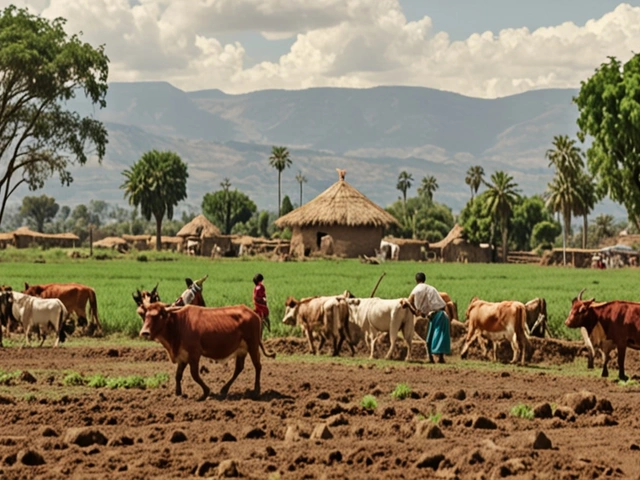Third World Realities in Ethiopia: Jobs, Wealth & Everyday Life
People hear the words “third world” and instantly picture struggle, poverty, or uphill battles, but that’s only half the story in Ethiopia. There’s a lot happening here, and if you look closer, you’ll spot growing business hubs, inspiring success stories, and new job opportunities that most outsiders don’t expect. Ethiopia is changing fast. The gap between tradition and modern business is closing—sometimes clashing, sometimes blending in wild ways.
Jobs are a huge topic. While many Ethiopians still depend on agriculture, the number of people working in tech, manufacturing, and services keeps growing. From government reforms to foreign investments, job seekers are finding all sorts of openings, whether they want to make money online, start their own ventures, or work for established companies. Not all jobs pay well, though. Salaries can differ a lot depending on your field, skills, and where you work—Addis Ababa versus rural towns could mean a completely different paycheck.
Speaking of pay, questions around wealth in Ethiopia aren’t as straightforward as just looking at salaries. The minimum wage is low compared to global standards, but living costs, especially outside the capital, can be surprisingly affordable. Still, rent and basic expenses in Addis can eat up a big part of a monthly paycheck. So answers to “Is life affordable?” really depend on your expectations and lifestyle choices. If you want modern comforts, they’re available—but they’ll cost you.
Wealth and investment in Ethiopia isn’t just a story of numbers. You won’t find as many millionaires as in top economies, but the country is home to business leaders, entrepreneurs, and innovators making serious moves. Their journeys aren’t easy, yet some have built fortunes from scratch—usually in agriculture, construction, real estate, and lately, tech. Reading about Ethiopia’s richest and how they did it can be a wakeup call for anyone thinking it’s impossible to make it big in a so-called third world environment. These folks prove that grit and smart thinking go a long way, even if the system isn’t always perfect.
Investors are waking up to Ethiopia’s potential too. Whether it’s agriculture, construction, or digital services, opportunities exist if you understand the local market and adapt to the unique rhythm here. Sure, there are risks—regulations change fast and the financial system is still developing, so things like PayPal aren’t fully available yet. Still, with the right info (and help from locals), you can find real ways to earn, invest, and grow.
The “third world” label tells only a small part of Ethiopia’s story. Dive into its job market, look at salaries, meet entrepreneurs, or explore investments, and you’ll discover there’s way more depth—and a lot more opportunity—than clichés let on.





